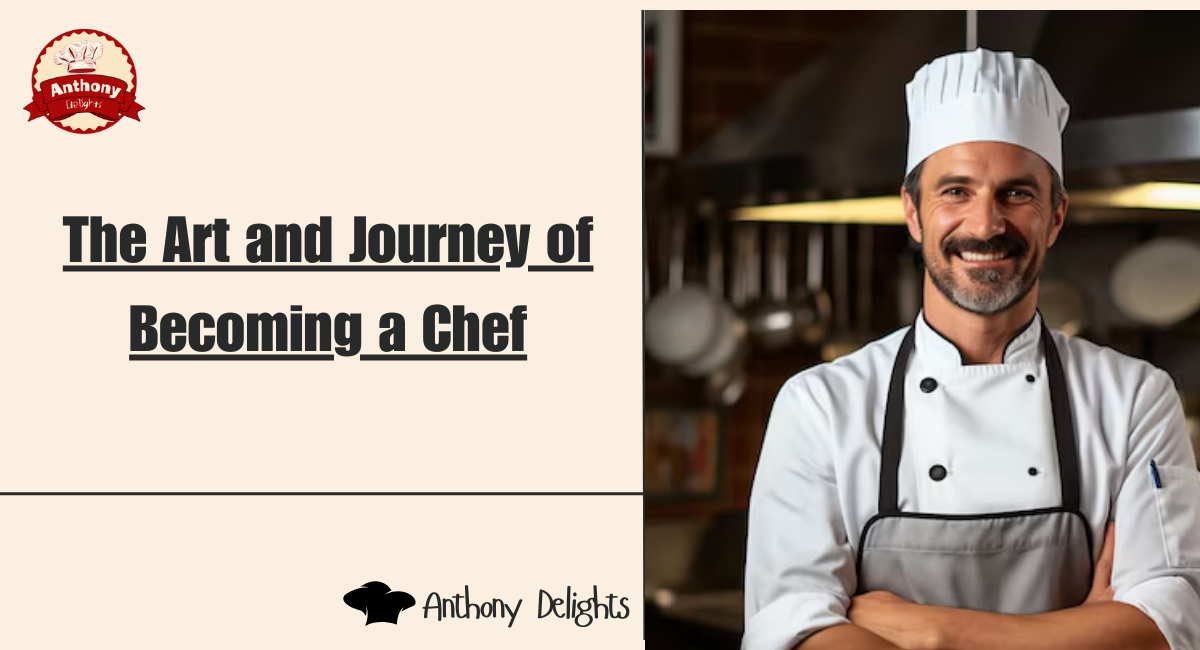Introduction
Becoming a chef is an intricate journey that blends passion, creativity, discipline, and an unwavering commitment to the craft. It starts with a deep love for food and a desire to explore the myriad flavors, textures, and techniques that define global cuisines. The path is often rigorous, requiring formal education in culinary schools where foundational skills are honed. However, the real art of becoming a chef is cultivated through hands-on experience in bustling kitchens, where the heat of the stove is matched only by the intensity of the learning curve. This journey is also about embracing the rhythm of the kitchen, understanding the importance of teamwork, and developing resilience in the face of challenges. Over time, a chef learns to master the balance between tradition and innovation, blending classic methods with personal flair to create dishes that are not only delicious but also tell a story. The art of being a chef extends beyond cooking—
it’s about curating experiences, leading a team, and continuously evolving in an ever-changing culinary landscape. Ultimately, becoming a chef is a lifelong journey of growth, where each dish is a testament to the chef’s dedication, creativity, and passion for the culinary arts.
The Early Steps: Passion and Education
For many chefs, the journey begins with a passion for food and cooking. This often starts at a young age, perhaps influenced by family traditions or an early fascination with cooking shows. However, passion alone isn’t enough. Formal education, typically from culinary schools, provides essential skills and knowledge. These institutions offer programs ranging from basic culinary techniques to advanced studies in gastronomy, nutrition, and restaurant management.
Gaining Experience: The Kitchen Apprentice
After formal education, the real learning happens in the kitchen. Starting as an apprentice or line cook, aspiring chefs gain hands-on experience under the guidance of seasoned professionals. This period is crucial for developing technical skills, understanding kitchen operations, and learning to work efficiently under pressure. It’s a time of hard work, long hours, and absorbing as much knowledge as possible from mentors and peers.
Climbing the Culinary Ladder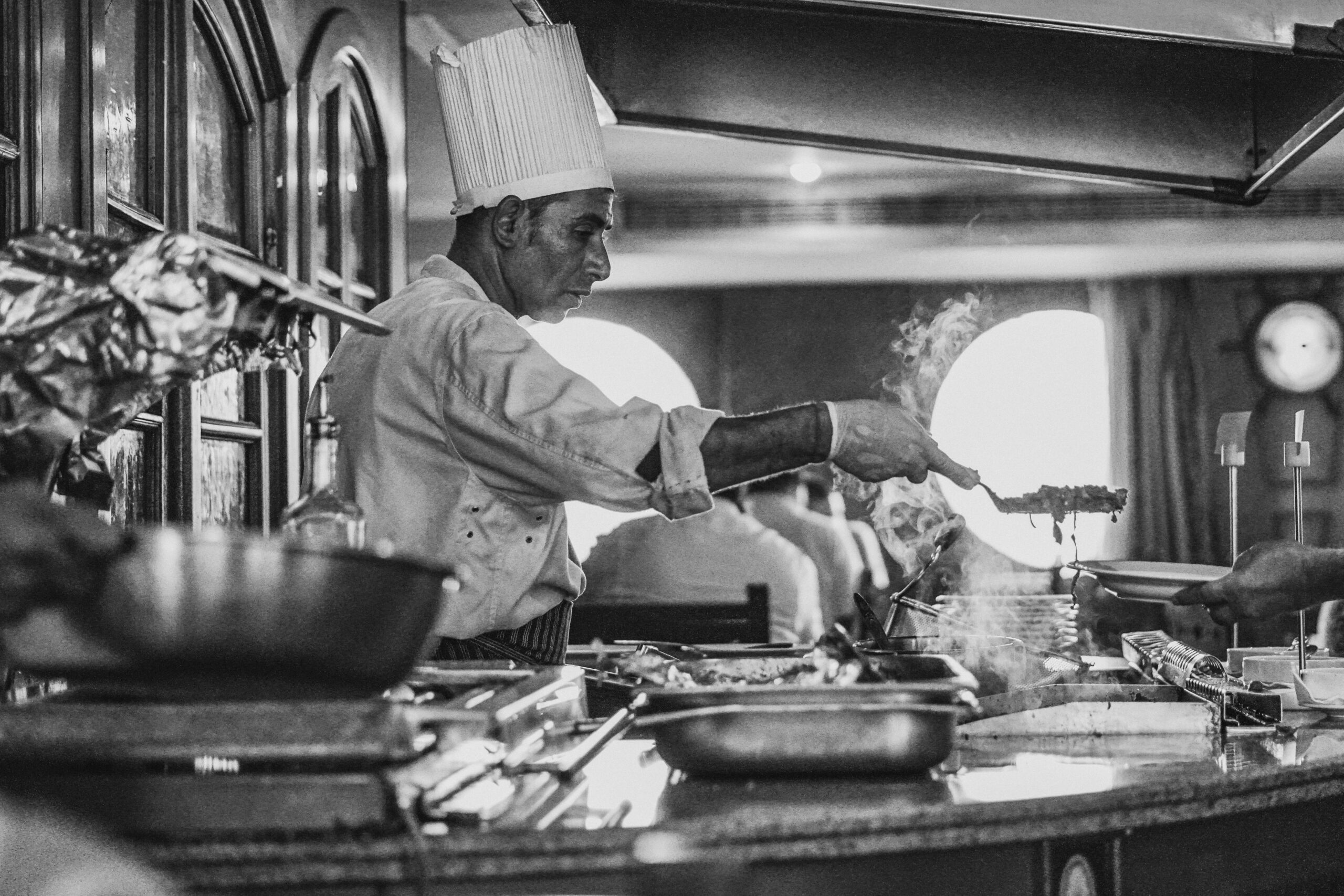
As chefs gain experience, they begin to take on more responsibility. This can involve moving up the ranks from line cook to sous chef, and eventually to head chef. Each step comes with new challenges, from managing kitchen staff and creating menus to sourcing ingredients and ensuring high standards of food safety and hygiene. Success at these levels requires not only culinary expertise but also leadership, creativity, and business acumen.
The Importance of Continuous Learning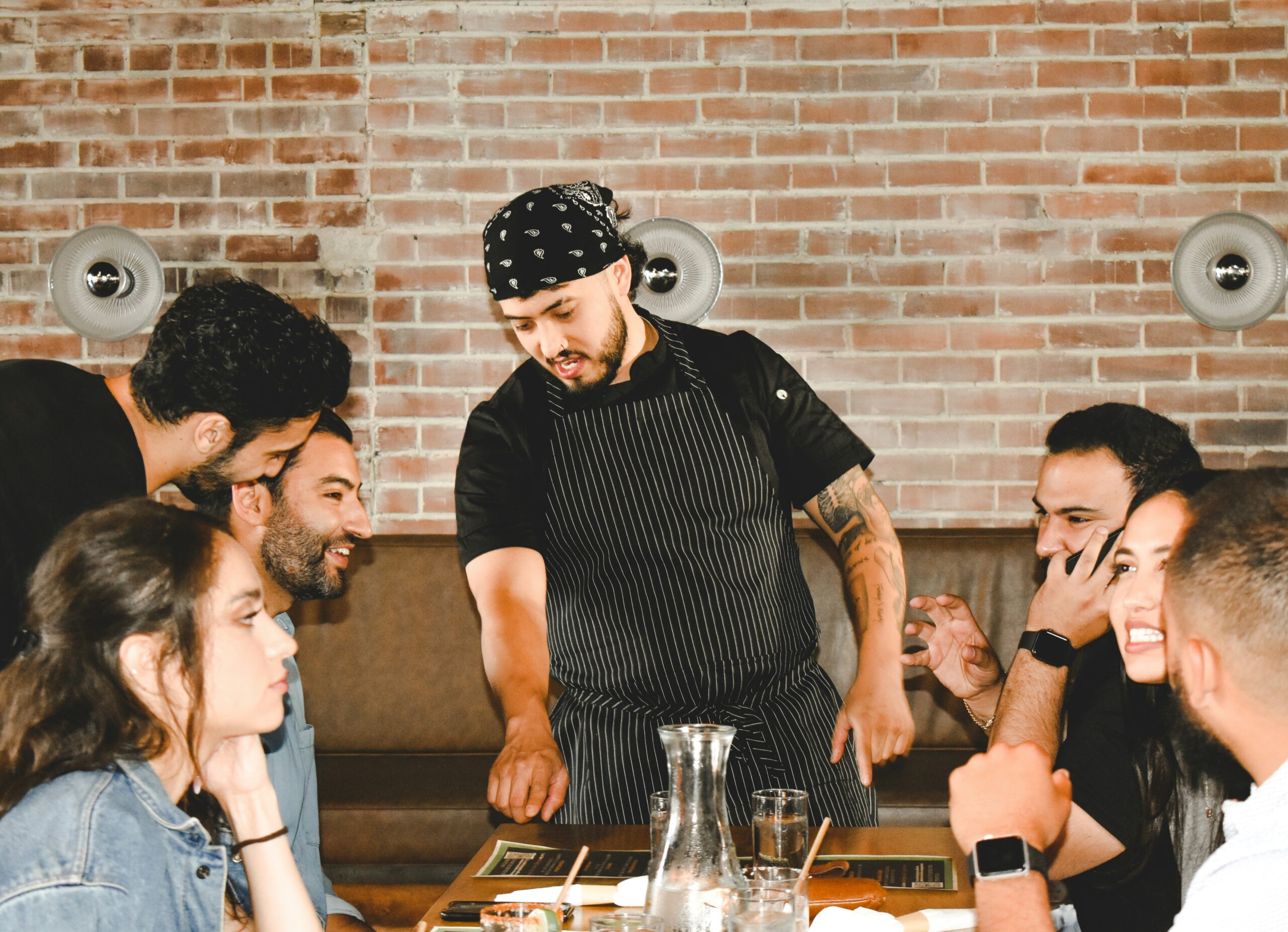
The culinary world is dynamic, with new trends, techniques, and ingredients constantly emerging. Successful chefs never stop learning. Whether through travel, networking with other culinary professionals, attending workshops, or simply experimenting in their own kitchens, ongoing education is essential. This continuous learning helps chefs stay innovative and inspired, ensuring their culinary creations remain fresh and exciting.
Developing a Unique Style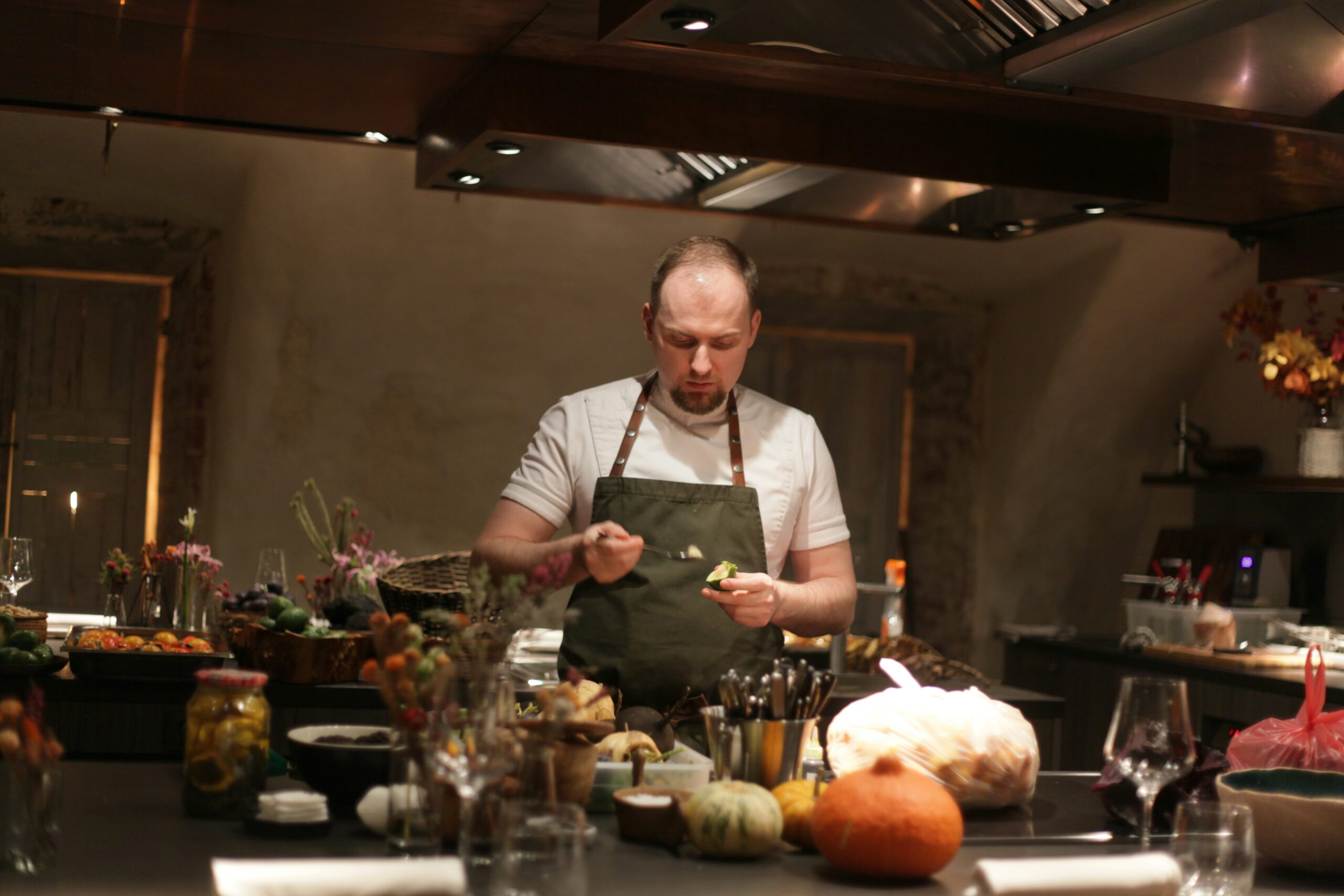
Every great chef is known for their unique culinary style. This signature style often evolves over years of experimentation and personal growth. It reflects a chef’s background, experiences, and personality. Some chefs may focus on traditional techniques and local ingredients, while others might push the boundaries with avant-garde methods and global influences. Finding and refining this unique voice is a key part of a chef’s journey.
The Rewards and Challenges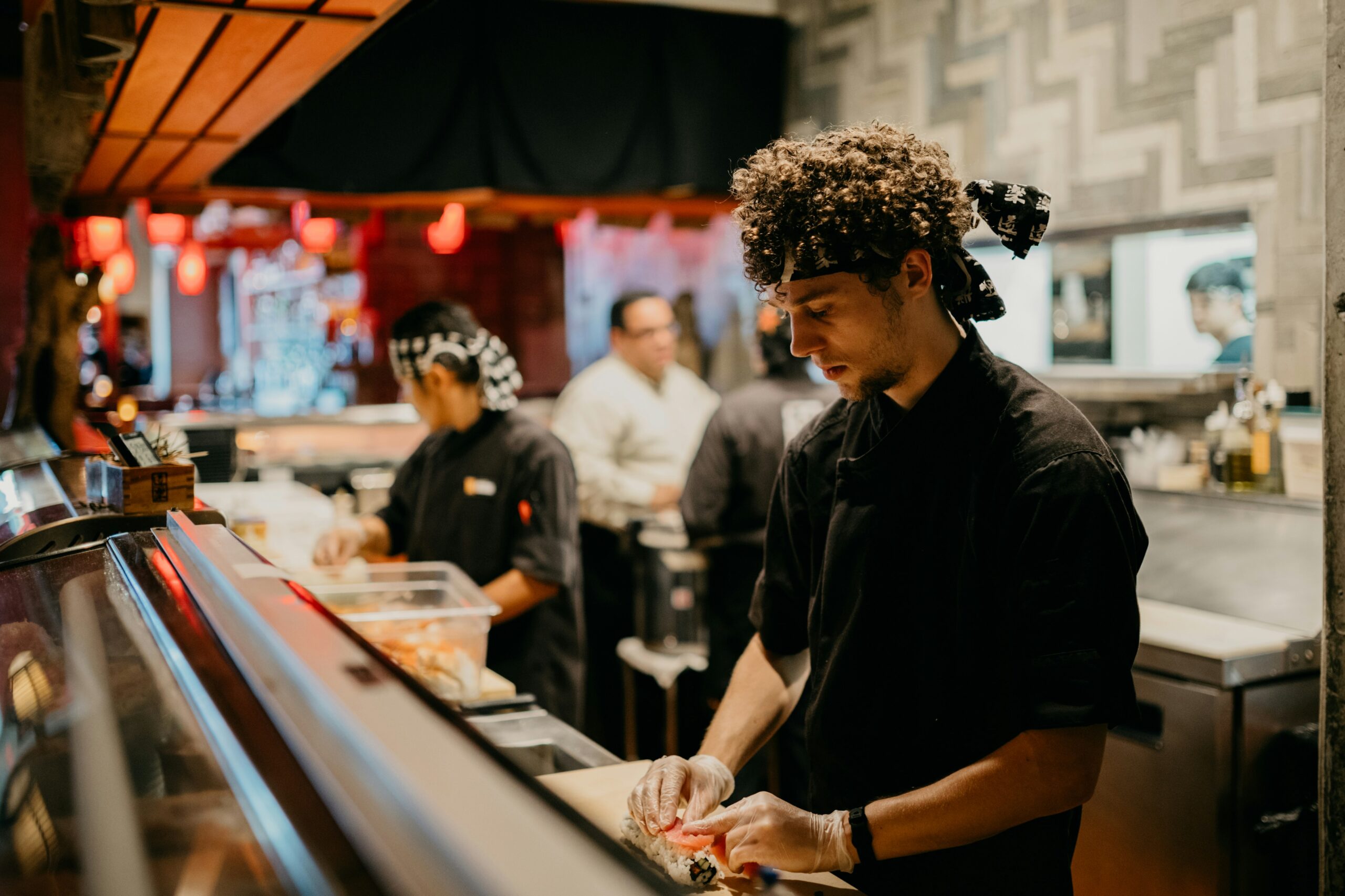
The life of a chef is both rewarding and demanding. The satisfaction of creating dishes that delight and inspire, the camaraderie of the kitchen team, and the respect earned from peers and patrons are some of the many rewards. However, the challenges are significant, including long hours, physical and mental stress, and the constant pressure to innovate and excel.
Conclusion
Becoming a chef is a journey of passion, hard work, and continuous learning. It’s about more than just cooking; it’s about crafting experiences that bring joy to others. For those willing to dedicate themselves to this demanding yet fulfilling path, the culinary world offers endless opportunities for creativity, growth, and success.
